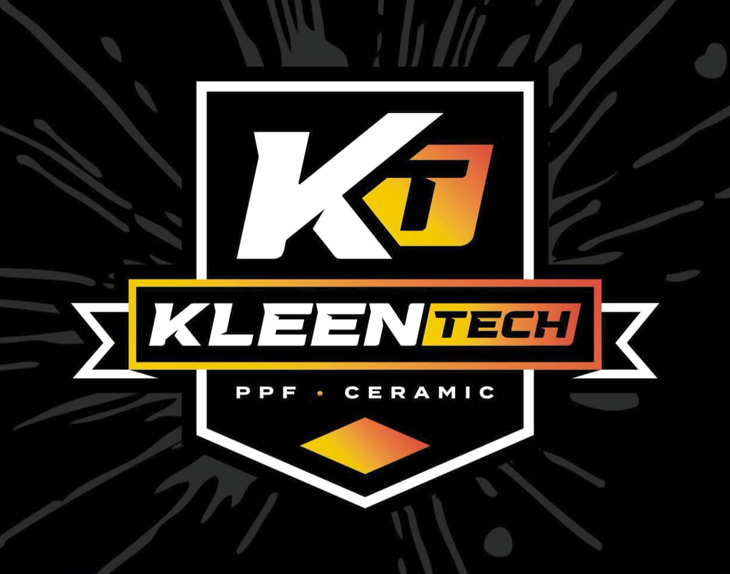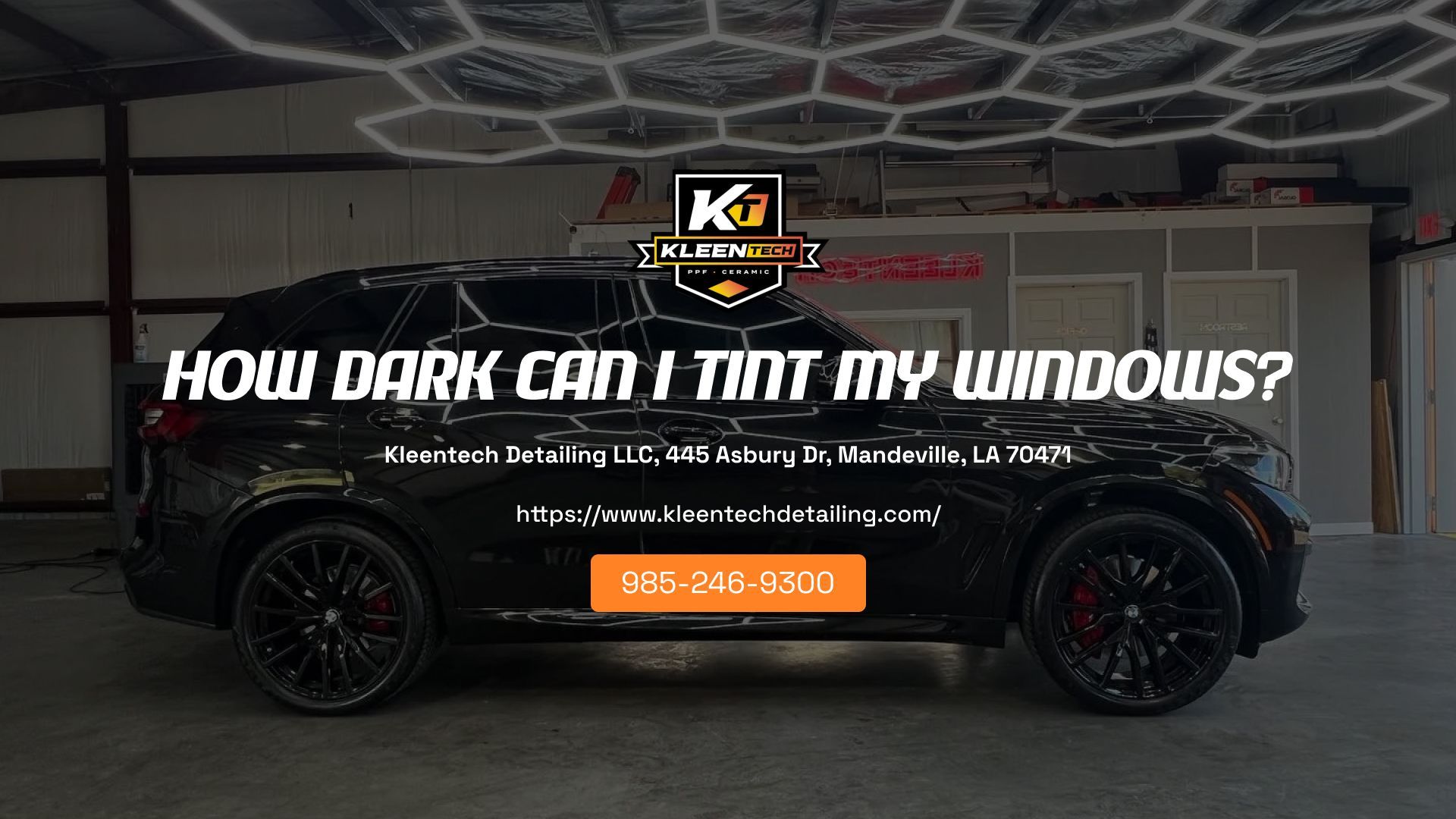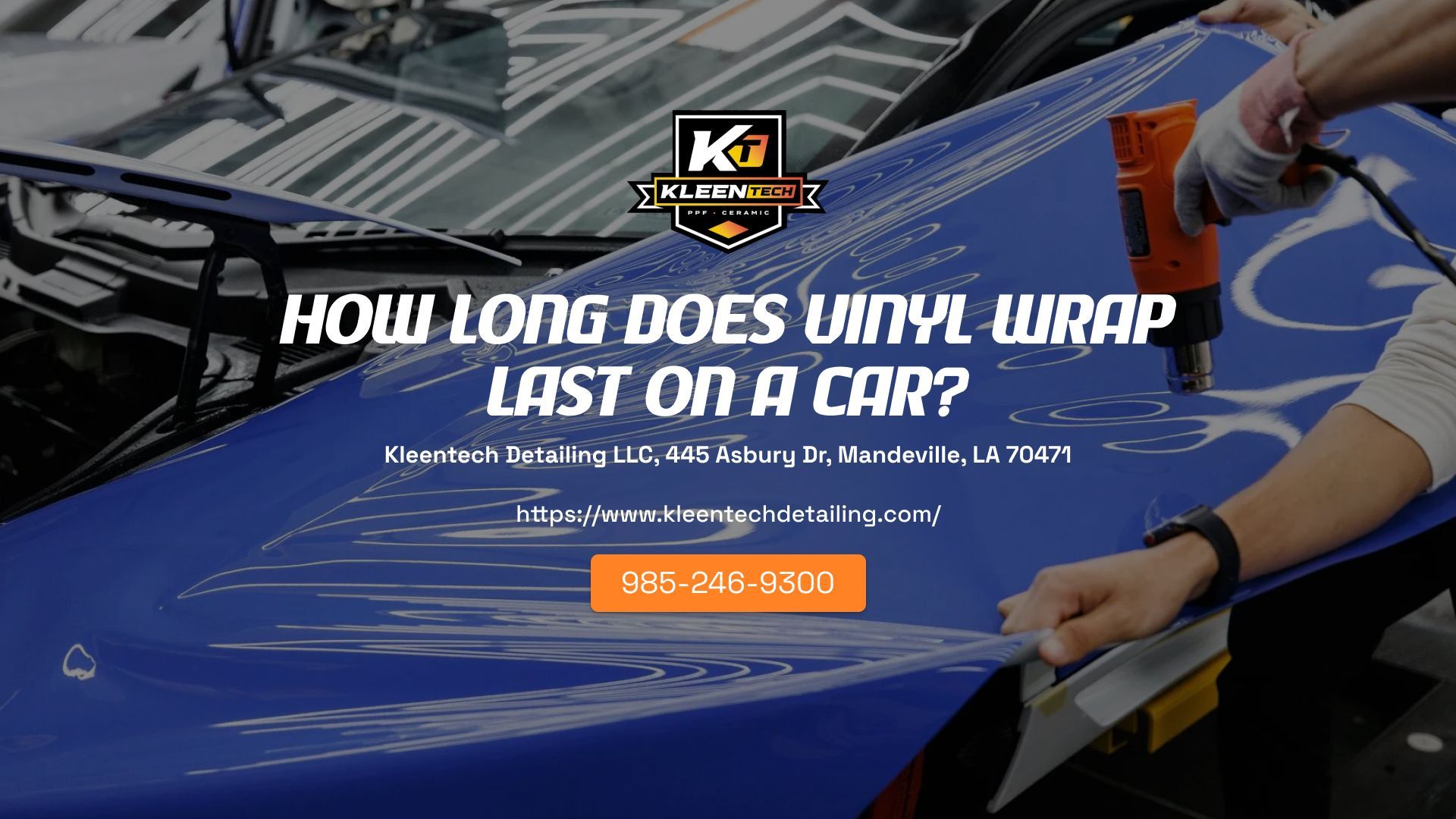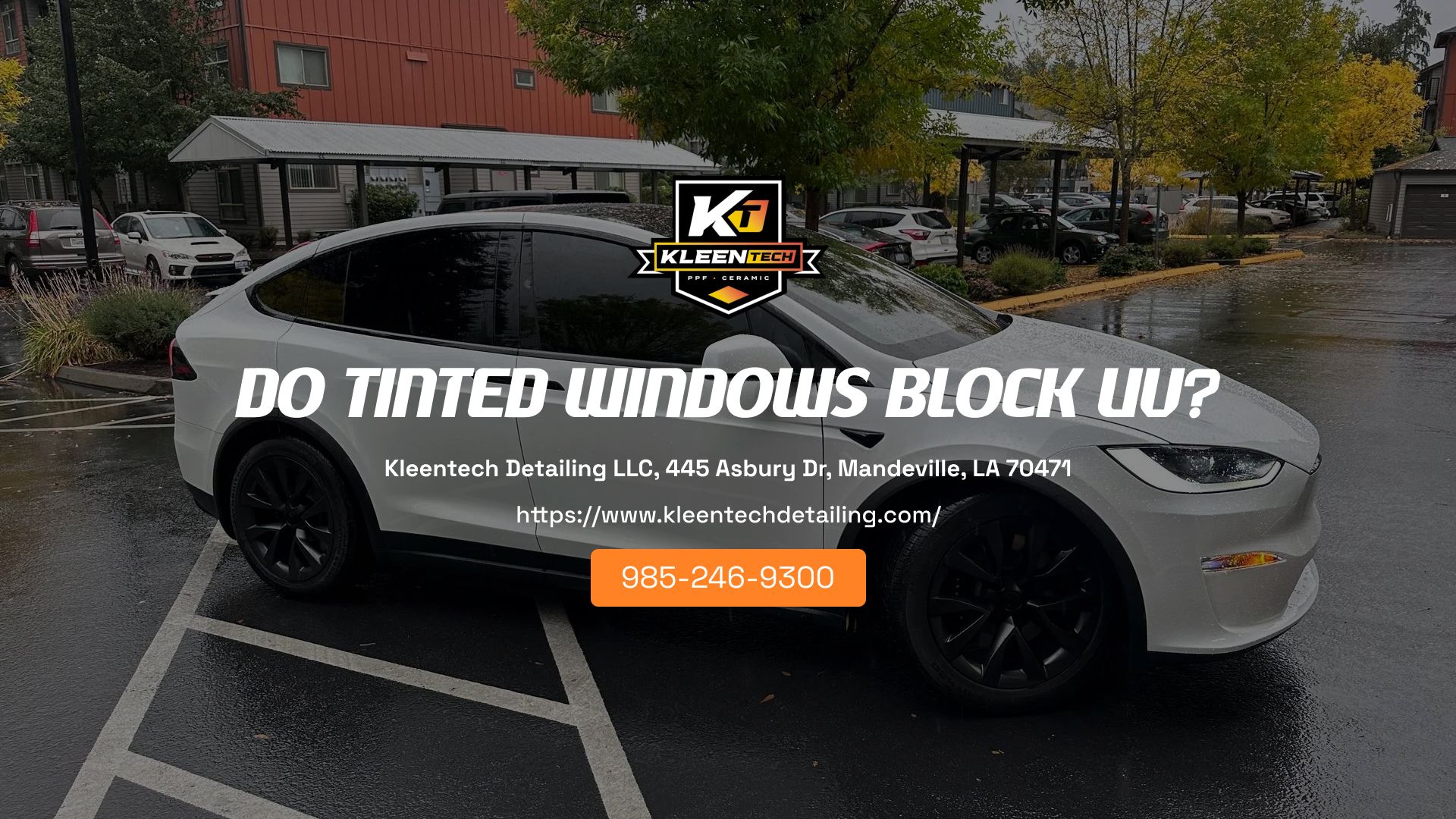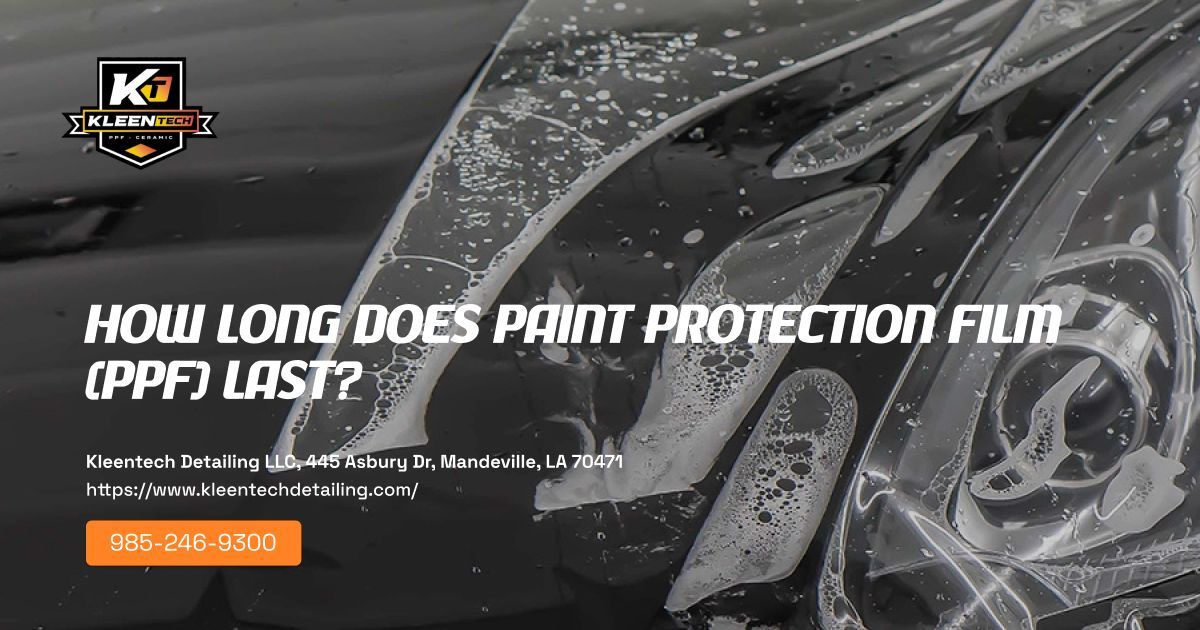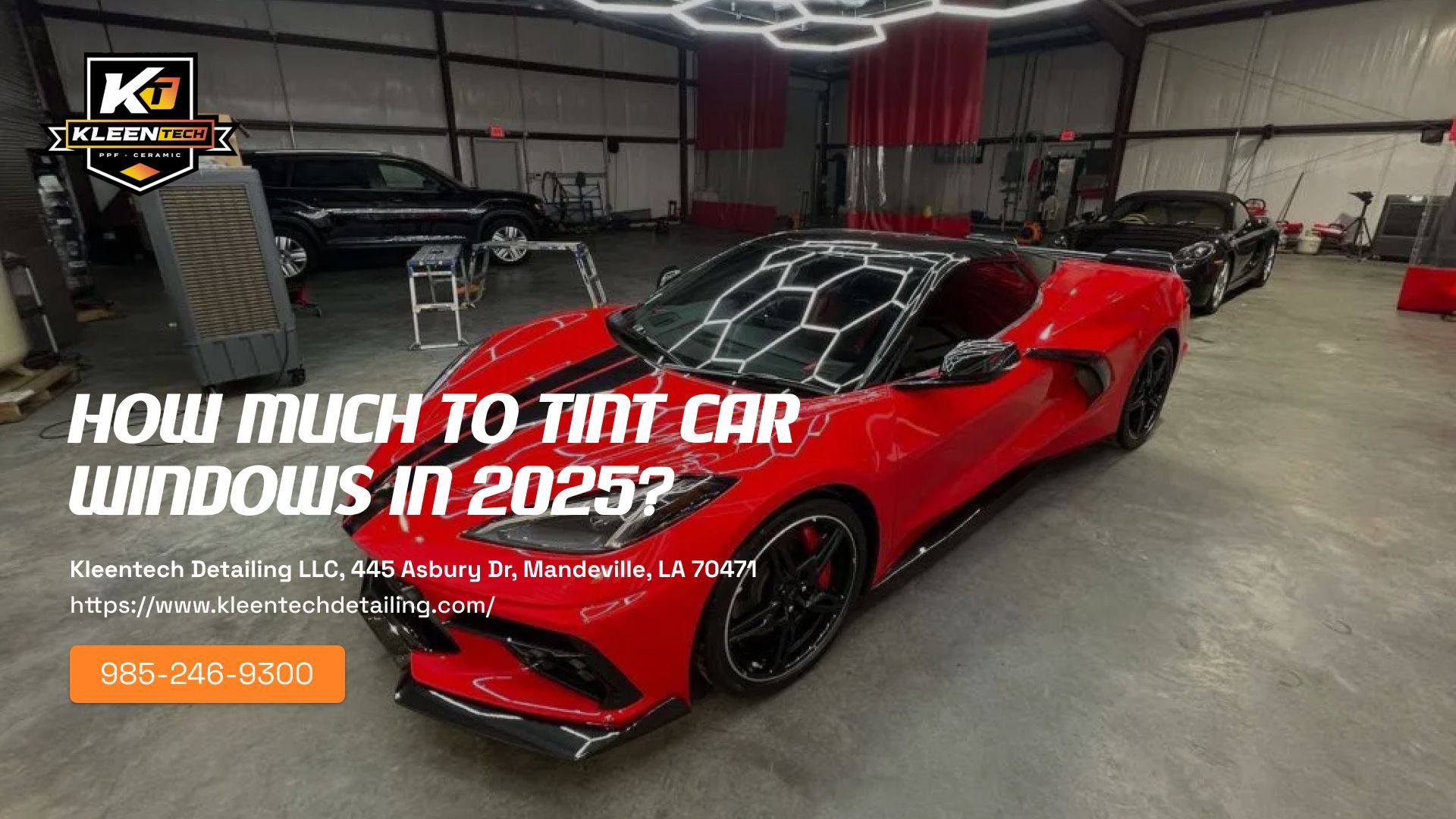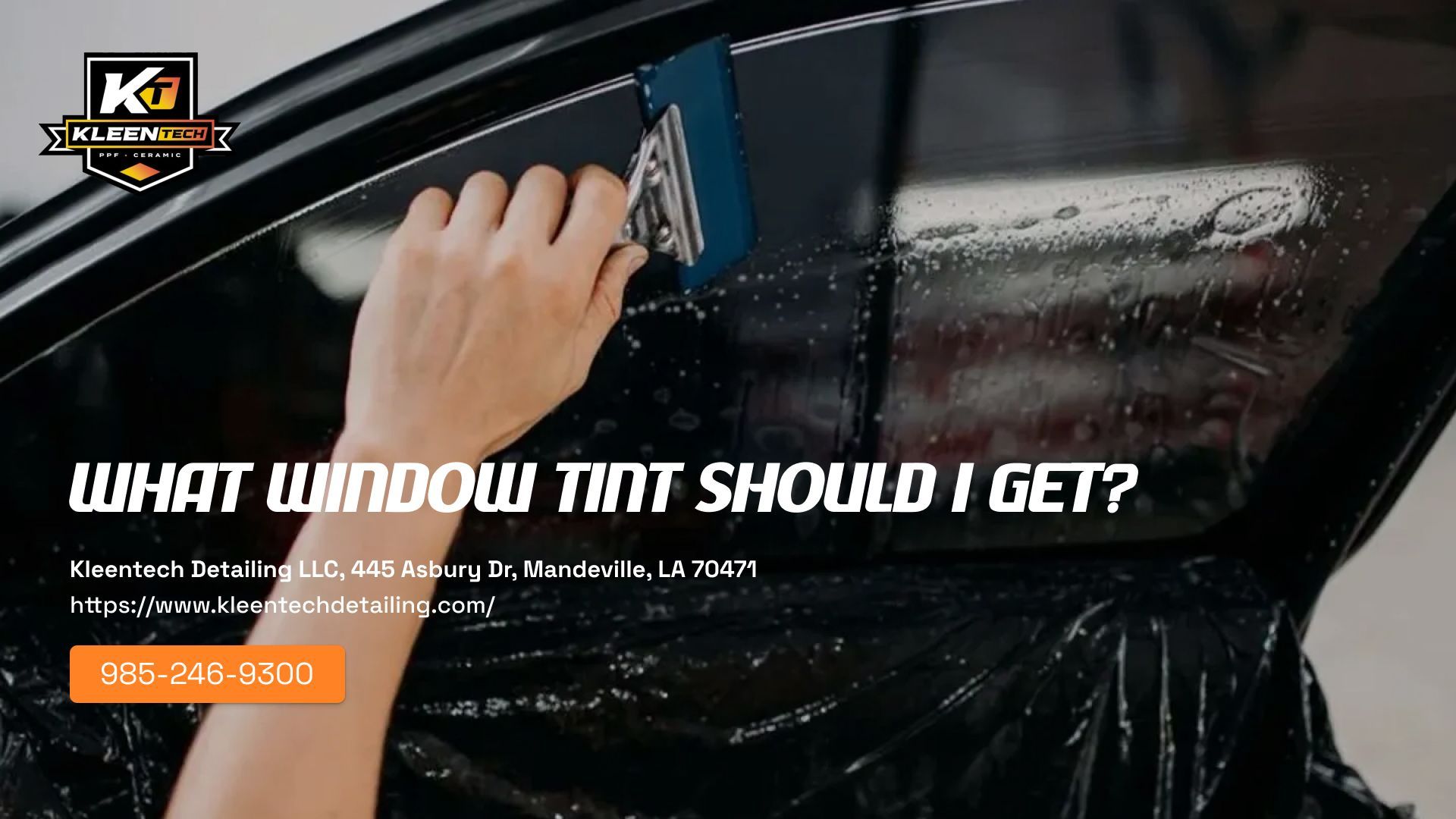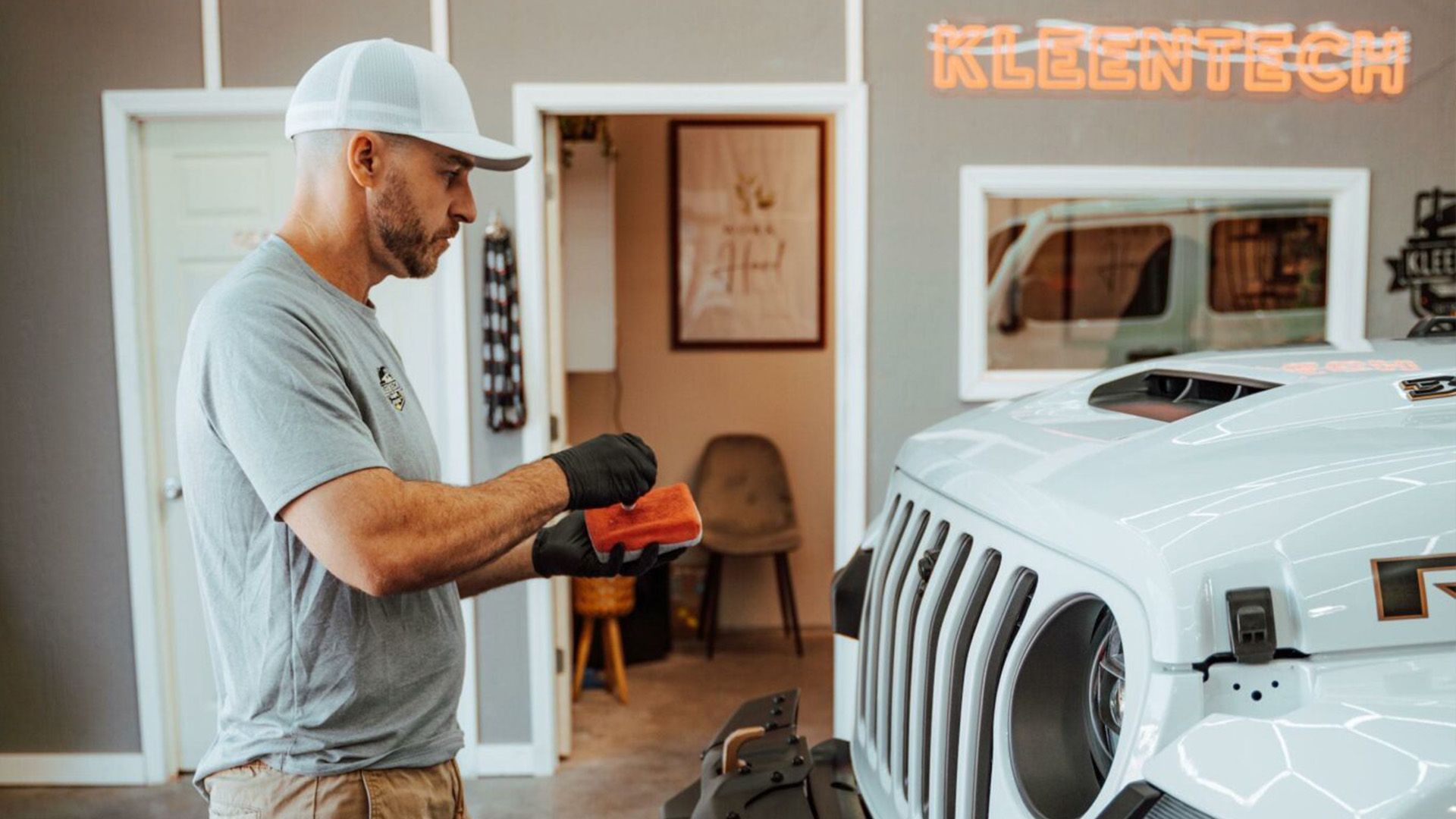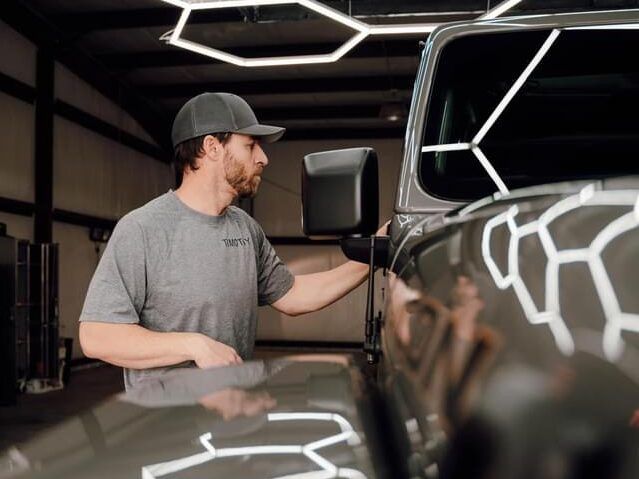Does Window Tint Go On The Inside Or Outside?
Table of Contents
Window tinting offers increased privacy, lowers interior temperatures, and shields against ultraviolet radiation. Wondering
does window tint go on inside or outside? This guide from
Kleentech Detailing clarifies the differences, core advantages, and what you should expect during the installation.
Key Takeaways
- Window tint goes on inside the glass for protection from the weather and scratches.
- Interior placement extends lifespan by preventing peeling and discoloration.
- Inside tint blocks UV rays and reduces cabin heat.
- Exterior tint is uncommon and wears out faster.
- Professional installation ensures quality with clean glass, bubble-free finish, and sealed edges.
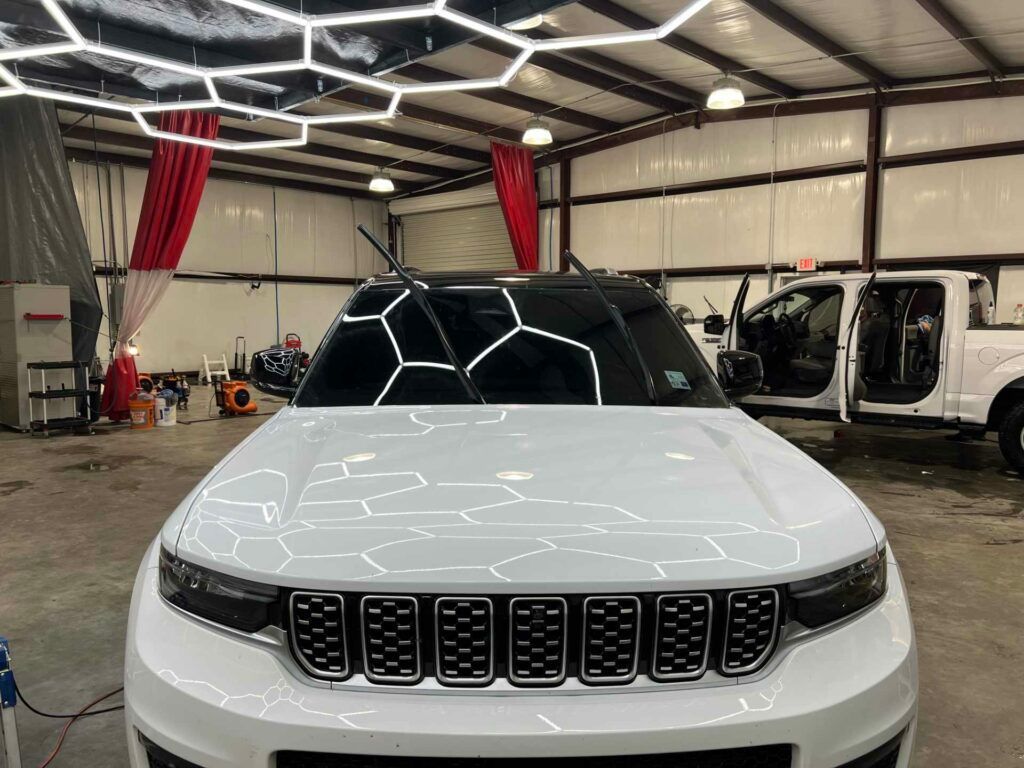
Outside Vs. Inside: Where Are Car Window Tints Applied?
So is window tint on the inside or outside? The answer is professional installers place window tint on the inside glass to shield the film from rain, dust, and scratches. Exterior application is uncommon and typically reserved for temporary tints or specialized outdoor films.
Many drivers also want to know the cost before deciding. You can see our guide on how much to tint car windows.
What Are The Benefits Of Using Interior Window Tint?
Here's why many drivers choose interior window tint:
- Weather And Debris Protection: Interior placement shields film from moisture, grit, road salt, and scratches, keeping the tint clear and damage-free.
- Extended Tint Lifespan: Internal application inhibits adhesive breakdown, peeling, and color change, prolonging the life of the window film.
- Heat And UV Rejection: Proper placement improves cabin cooling and blocks up to 99% of harmful UVA and UVB rays. This reduces interior fading and skin damage (according to the Skin Cancer Foundation).
- Factory-Like Finish: Inside tinting provides a clean, bubble-free appearance that matches the original car windows.
When To Choose Exterior Window Tinting?
See the comparison table below for clarity:
| Placement | Advantages | Disadvantages |
|---|---|---|
| Inside | Longer life, protected from the elements, smoother look | Requires clean interior glass |
| Outside | Quick install, fits some unique glass shapes | Shorter life, prone to damage |
Conclusion: Exterior window films are effective in certain cases, such as for construction vehicles or specialized commercial wraps. They allow faster application but wear out sooner.
The Process Of Window Tinting
Professional window tint installation follows these main steps to ensure quality and longevity.
Step 1: Preparation
Technicians clean the automotive glass with lint-free cloths and solution, measure precisely, and pre-cut the tint film to fit perfectly.
Step 2: Application
The tinted film is applied to the inside glass, starting from the bottom edge upward. A squeegee removes air bubbles and ensures full adhesion.
Step 3: Finishing Touches
Edges are heated to seal, excess film is trimmed, and every window is inspected for a clear, uniform appearance.
Key Factors To Consider For Inside Vs. Outside Tinting
These factors help determine whether inside or outside tinting will perform better for your vehicle.
Climate And Environmental Exposure
Hot summers, dusty roads, and high humidity can cause exterior films to deteriorate rapidly. Placement inside provides more durability and longer protection.
Local Tinting Laws And Regulations
Always check window tint laws by state (VLT%) before installation. The inside application is simple to comply with legal requirements while ensuring visibility and fashion.
Maintenance Requirements
Interior window tints require less cleaning and are more resistant to scratches than exterior films, reducing upkeep over time.
Is It Better To Tint Inside Or Outside?
Most vehicles benefit from interior window tinting because interior placement provides stronger protection, longer lifespan, and a cleaner appearance. Exterior films can still be useful for short-term applications, specialty vehicles, or glass shapes that make inside installation difficult. Choosing the right option depends on your goals, climate, and maintenance preferences.
Why Invest In Professional Window Tint?
Professional window tinting ensures compliance with state laws, correct film selection, and precise application. Certified installation reduces the risk of bubbling, peeling, or premature fading, helping the tint last longer and look better.
Book Window Tinting Near Me Today
Take your vehicle’s comfort, style, and UV protection to the next level with
Kleentech Detailing's window tinting service. Our team delivers expert craftsmanship using premium materials, backed by hundreds of positive reviews.
Schedule your professional window tint installation today and enjoy long-lasting results.
FAQs
Which side does window tint go on?
Professional tinting is almost always done on the inside glass to protect from the weather and damage.
What is the best way to apply window tint?
Clean automotive glass, cut film precisely, apply it on the inside, remove air bubbles, and heat-seal the edges.
Can I roll my windows down 2 days after tint?
Wait 2–4 days, depending on the climate, before lowering windows to avoid damaging the fresh tint film.

